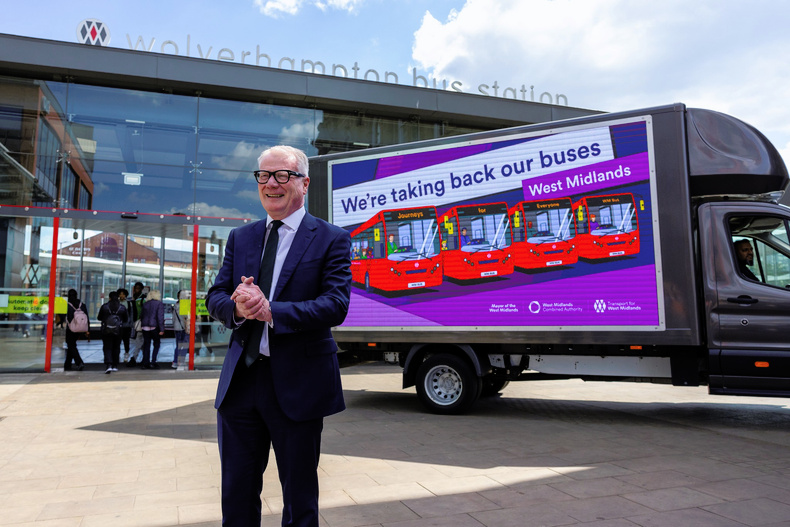Revolution in region’s bus services promised after mayor signs order to ‘take back control’

West Midlands mayor Richard Parker has vowed to revolutionise the region’s buses after giving the green light to proposals that will bring the network back under public control for the first time in almost 40 years.
The landmark decision, signed by the mayor after the West Midlands Combined Authority (WMCA) board meeting on Friday, has kickstarted the transition process towards franchised bus services – replacing the current private operator-led network.
The first public controlled services, which are likely to include a non-stop Sprint service from Walsall to Solihull via Birmingham city centre, are expected to start rolling out in late 2027, with the whole process finished during 2029.
The mayor (pictured) said: “For too long, our buses have been run for private profits, not public good. Today, that changes.
“The public have been clear - they want a better bus service under public control, and I’ve heard them loud and clear. I promised to take back control of our buses - and today’s decision shows we’re delivering on that promise.
“The work is now underway, and over the next two years we’ll create a bus network that puts passengers first - reliable, affordable and run in the interests of the people that use them.”
With 236 million journeys last year, buses account for eight in ten public transport trips.
Under franchising, Transport for West Midlands (TfWM), which is part of the WMCA, will set the fares, timetables and routes of bus services and award a series of contracts to private bus operators to run them.
There are expected to be nine local area franchises with three rolled out each year from 2027-2029, plus a number of smaller single route contracts to encourage smaller bus operators to bid.
The one-off costs of setting up the new franchised operation and designing the new network is expected to be £22.5 million over three years.
Bus depots - the WMCA already owns one in Walsall - and a fleet of more than 1,000 buses will also be needed – either bought outright or leased using either the authority’s transport grants or borrowing through fare income.
This will increase competition by opening up the new franchises to a wider range of operators.
TfWM is also continuing to invest in key infrastructure including a network of bus priority routes to help services bypass traffic jams and improve reliability.
